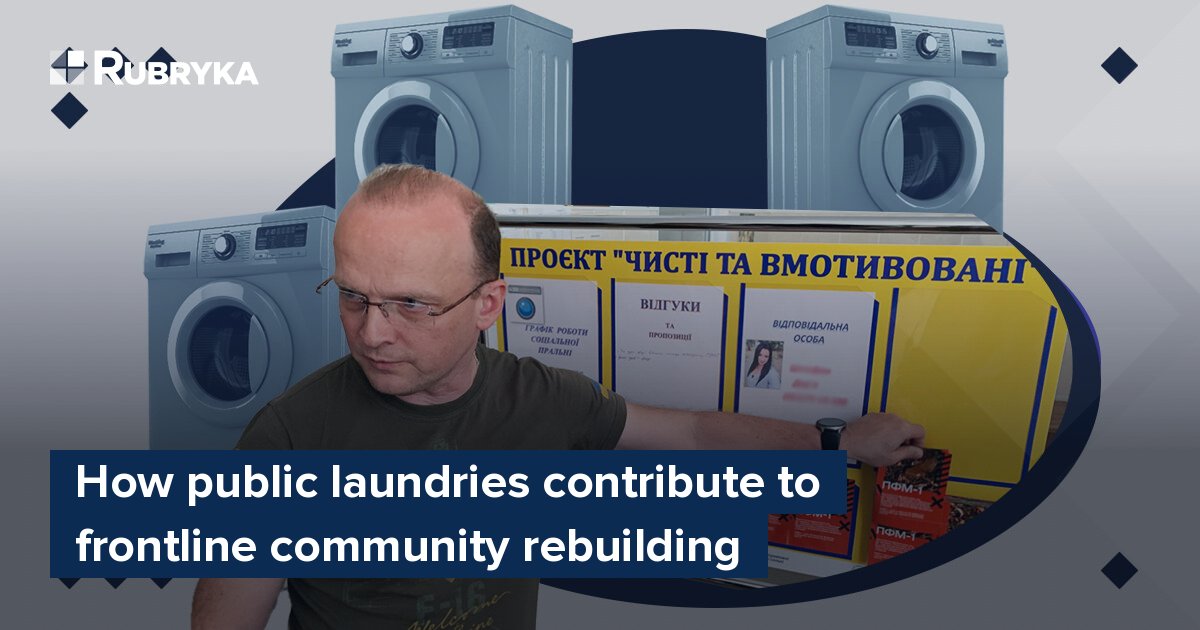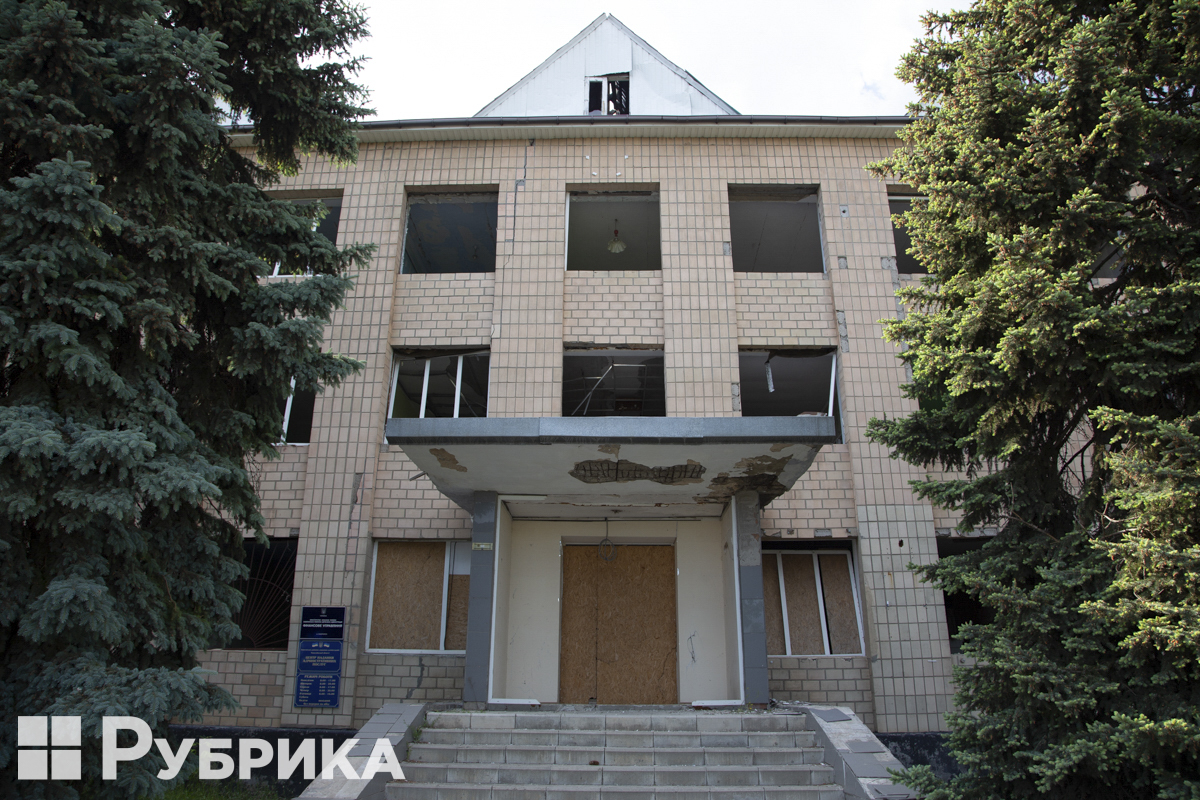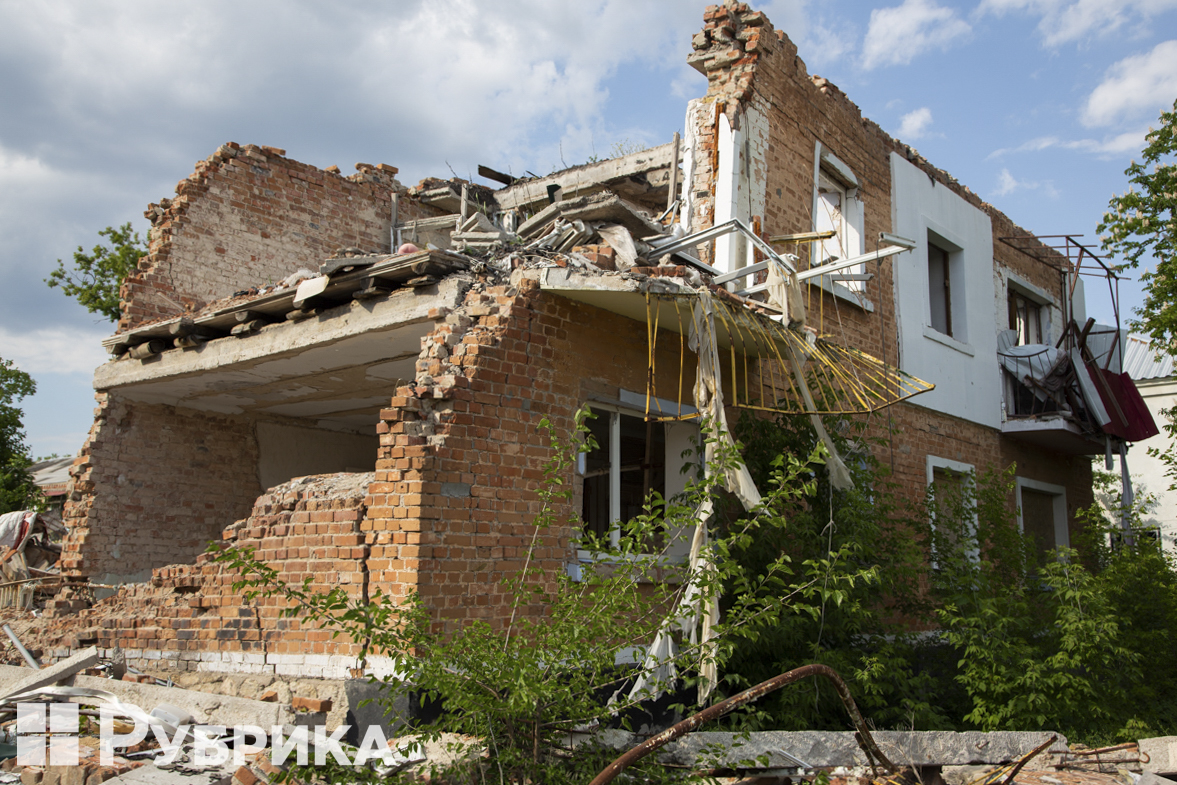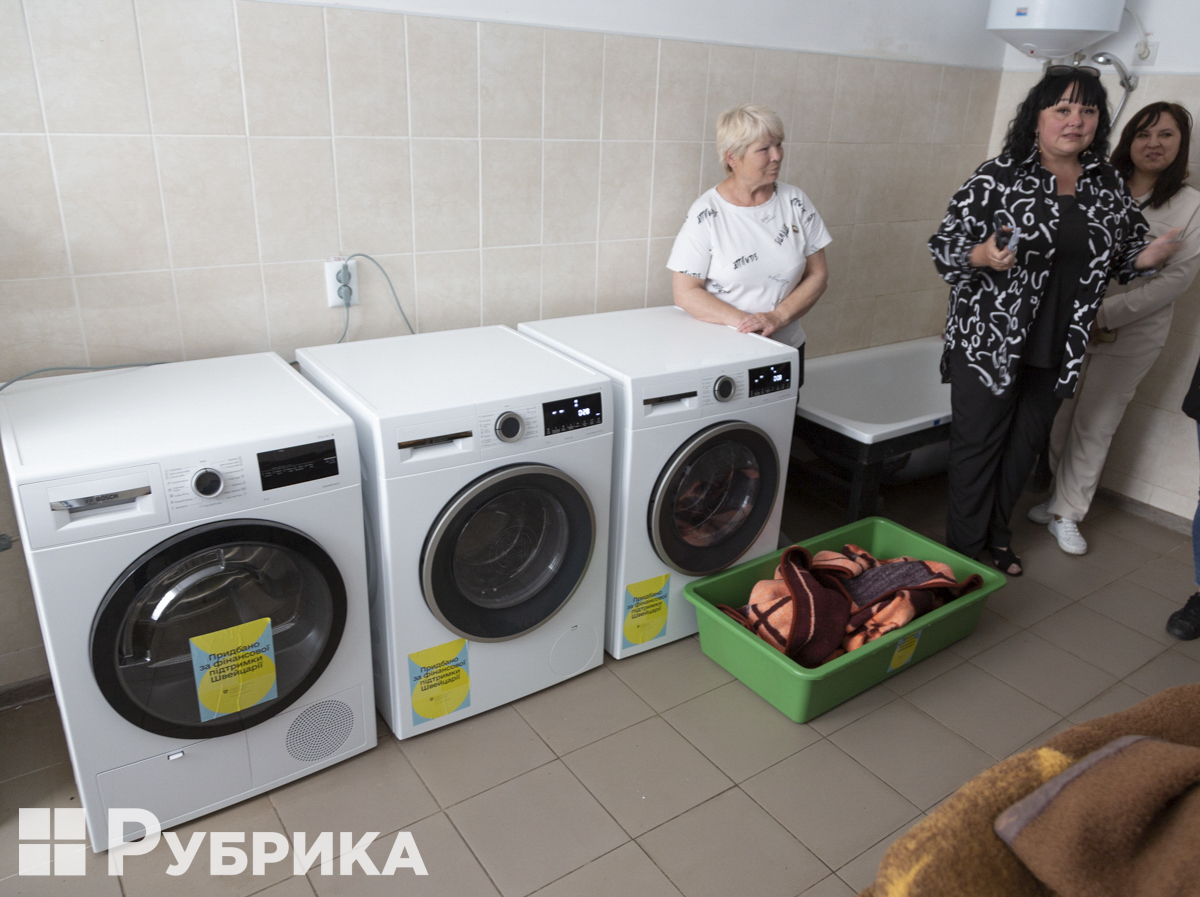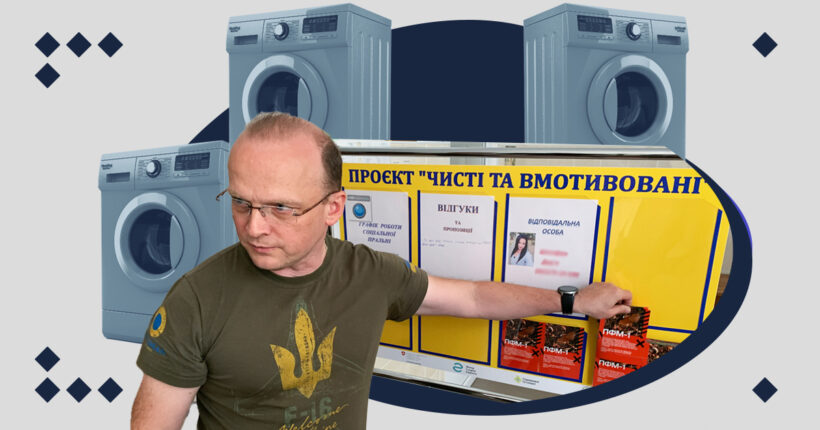
What is the problem?
Communities in the Mykolaiv region have faced diverse experiences since the onset of the full-scale invasion. Some endured an occupation lasting over eight months, others became frontline communities suffering from constant shelling, while some managed to repel the invasion at the onset of the war.
Bashtanka is one such community. The battle for the town lasted three and a half hours. Then, the local territorial defense forces forced the enemy to retreat. Subsequently, the enemy repeatedly shelled the town. More than 100 houses and 26 municipal property objects were damaged in the community, which used to have a population of 22,000 residents.
The community has experienced the entire arsenal of Russian weapons, from bullets to air bombs.
The Russians also targeted the water supply system that catered to Bashtanka and several neighboring villages, firing about ten missiles at it.
Despite its proximity to the frontline and the destruction of infrastructure, Bashtanka has become a refuge for internally displaced people from the occupied parts of Mykolaiv and Kherson regions. Those who did not wish to travel far from home found shelter here.
Today, Bashtanka continues to provide shelter, primarily to people from the frontline areas of the Kherson region. Officially, there are 3,800 IDPs in the community now, but the actual number is impossible to determine. The city authorities explain that their number is constantly changing depending on the intensity of the shelling or other events, such as the explosion of the Kakhovka hydroelectric power plant.
What is the solution?
Communities like Bashtanka typically have limited budgetary capacity, which restricts large-scale rebuilding. However, local residents can initiate and accelerate this process through the development of the volunteer movement and the public sector.
This is why the All-Ukrainian Public Center Volunteer brought the project Clean and Motivated to Bashtanka, which aimed to stimulate the development of public initiatives that would contribute to the community's recovery.
Under the project, 12 stationary laundries were established in the liberated villages and towns of Mykolaiv and Kherson regions. These facilities, equipped with modern washing and drying machines, are available for community residents to use free of charge. Volunteers have been engaged to operate these community laundries.
"We initiated this project to activate the community. Initially, we recruited volunteers to work in the laundries. In the future, we plan to provide training in project writing. Then those people who now live in this community will be able to create projects themselves and engage in rebuilding efforts, both here and in other communities," Dmytro Doroshok, Deputy Head of the Center Volunteer, says.

Dmytro Doroshok, Deputy Head of the Center Volunteer
Dmytro Doroshok and Oleh Dibrova from the Center Volunteer introduced the Clean and Motivated project to Rubryka on-site in Bashtanka. By the way, representatives of the Swiss Embassy also visited the center during the Clean and Motivated project premises. The Swiss Embassy is the project's primary funder under the Capable and Resistant program, which the East Europe Foundation implements.
We will explore how community laundries operate and assess whether they have truly served as a catalyst for community development.
How does it work?
The idea to create community laundries emerged in response to the Russian-caused catastrophic explosion of the Kakhovka hydroelectric power plant. The catastrophe has greatly impeded all domestic processes for many residents of the Kherson and Mykolaiv regions, as the water supply has either stopped completely or has been intermittent. In particular, the trivial need to wash one's clothes has become particularly acute. The volunteers identified this issue, developed a project to address it, and began seeking active communities for implementation.
The volunteers prioritized gaining the support of local authorities for this initiative, as they are equipping the centers with a grant from the East Europe Foundation. However, hereafter, the maintenance of these public laundries will be the responsibility of the local authorities. This is how the project appeared in the Bashtanka community: Dmytro Doroshok, together with Svitlana Butuchel, a volunteer from Bashtanka, pitched the project to the mayor, who enthusiastically supported the idea. Now the town has two public laundries.
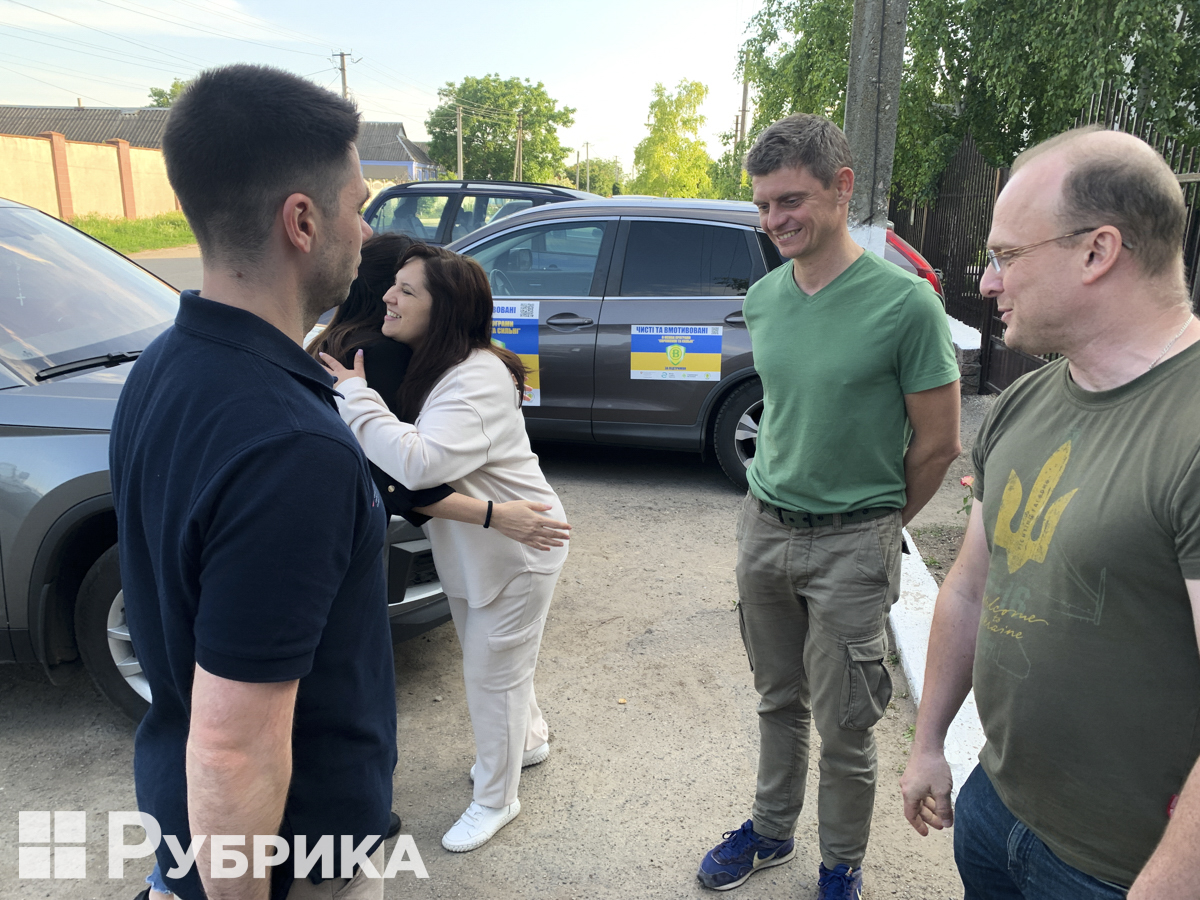
Representatives of the Swiss Embassy (left), Svitlana Butuchel (center), and representatives of the Center Volunteer (right).
One of the public laundries is situated within the kindergarten Vinochok. The institution's director, Maryna Kovtun, informs us that the kindergarten has been empty of children for the past three years due to safety concerns arising from its proximity to the front line.
Instead of children, local volunteers who work in a public laundry have settled in the kindergarten. Their primary responsibility is assisting those who struggle with laundry or transporting their clothes to the facility. In such cases, the volunteers personally visit the residents of Bashtanka, collect the laundry, wash, dry, and return the items.
"Local volunteers are exceptional, always ready to lend a hand. They personally visit people with disabilities and pensioners. They use whatever means of transportation they have, usually a bicycle or scooter. We have received a lot of positive feedback, both verbal and written — people are very grateful," Kovtun says proudly.
At the same time, public laundries are accessible to everyone, but they are most frequently used by internally displaced persons (IDPs). Many of these individuals live in homes without washing machines, and purchasing new ones is expensive and often unaffordable for IDPs.
To use the laundry services, people simply need to make a phone call or fill out an online form — the laundries are open daily. They are also equipped with power generators to ensure service continuity during power outages.
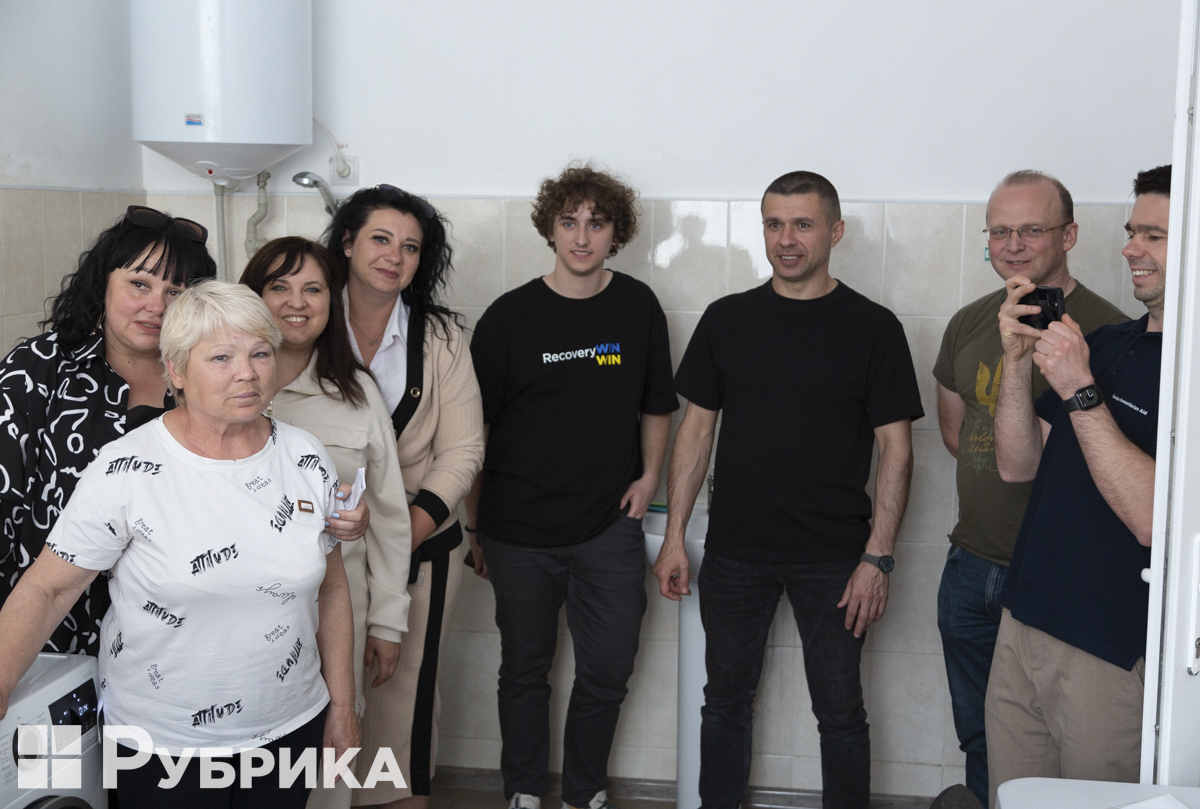
Representatives of the Swiss Embassy, the Center Volunteer, and local volunteers at the public laundry.
The second laundry is located in a center for internally displaced persons. These locations were strategically chosen to cater to the high demand for laundry services. One of the center's employees recalls that at the beginning of the full-scale invasion, so many people came here that some had to sleep on benches, the floor, and the stairs. Back then, the building was barely equipped.
But now the center has been renovated. Now, each family has a separate room and everything they need to live there. Special playrooms for children have also been set up here, where they can learn, play, read, and socialize. The center also has its own kitchen with volunteers who cook breakfast, lunch, and dinner.
Although this renovation is not part of the project Clean and Motivated, it has given a new lease of life to the volunteer movement in the community. The process of equipping the center has attracted new people and given volunteers, including the aforementioned Svitlana, the head of the public organization that runs the center, the opportunity to learn.
"I can honestly say that there are no problems for IDPs in Bashtanka. Everyone meets us halfway, always responds, and is ready to help," the woman, who fled the occupation and has been living with her family in Bashtanka as an internally displaced person for three years and now volunteers at the public laundry, says.
Initiatives such as Clean and Motivated are more important and relevant today than ever because they support small communities. They give locals and IDPs a sense of normalcy despite the difficulties of the times. They also create active communities, showing them that positive change is possible and that each of them can stand behind it.



